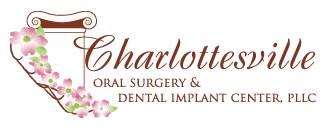15 Feb Preparing for IV Sedation or Anesthesia
To achieve maximum comfort during an oral surgery procedure, many patients opt for intravenous (IV) sedation or general anesthesia. IVs have a nearly instantaneous effect, and you’ll have no recollection of the procedure after it is complete.
When your sedation dentist uses IV sedation, the anti-anxiety medication that relaxes you (or puts you to sleep, in the case of general anesthesia) is delivered directly into your vein by a needle.
IV sedation is generally considered to be safer than general anesthesia because the patient remains conscious—although deeply relaxed—throughout the procedure and maintains the ability to respond to the surgeon’s commands.
Anesthesia is not unsafe, however. Regardless of whether they choose IV sedation or general anesthesia, patients are carefully monitored during the procedure for signs of problems with the medication.
Before undergoing a procedure with IV sedation or anesthesia, you will need to take steps to prepare and ensure your safety while you are undergoing the procedure. Your sedation dentist will give you a list of guidelines to follow in the days and hours leading up to your appointment.
You should not eat or drink anything, including water, in the eight hours prior to your appointment. Smoking is also out in the 12 hours preceding the surgery.
Remove any nail polish before the surgery and avoid wearing heavy makeup or lipstick. To accommodate the IV, you’ll need to wear loose-fitting sleeves that can be easily rolled up past the elbow, so plan your outfit accordingly. Choose low-heeled shoes so that you won’t have trouble walking around after the procedure.
Take out your contact lenses and dentures (if you have them) and take off any jewelry immediately before the surgery.
You will not be able to drive immediately after recovering from the anesthesia, so make arrangements for a responsible adult to escort you to your appointment.
As part of your preparations, you should also have an in-depth discussion about your sedation and anesthesia options with your oral surgeon. This will help you choose the best method for your particular case.
Surgery with sedation or anesthesia can be a major proposition. Do your best to be ready for it by following the guidelines provided by your oral surgeon.
To learn more and to schedule a consultation, please contact the office of Dr. Carlos Ibañez in Charlottesville VA today.
